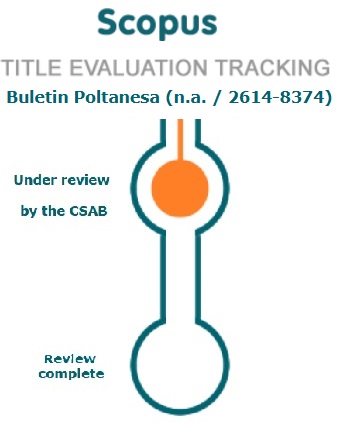The Role of Electronic Service Quality on E-Commerce Services Towards Customer Loyalty
DOI:
https://doi.org/10.51967/tanesa.v24i1.2121Keywords:
Electronic Service Quality (e-servqual), e-Customer Satisfaction, Reuse Intention, Word-of-Mouth, e-CommerceAbstract
This study examines the quality of electronic services e-servqual and its impact on electronic service quality, customer loyalty through reuse intention, and word of mouth. The internet has become a bridge or connection that forms an extensive network in the exchange of information, enabling fast data transfer. With the internet, there are no longer boundaries between devices connected to the internet gateway in the global market. The presence of the internet in this global market allows individuals to communicate with others without limitations of time, distance, or boundaries. This has resulted in innovations in the ever-changing and increasingly modern world of transactions. The internet's presence in the global market has fostered communication without knowing boundaries, time, or distance. The impact of globalization enables businesses to expand both domestically and globally. Traveloka is a digital business application that caters to various needs in a location. The method used in this study is quantitative and employs purposive sampling. A total of 251 respondents, who are users of the Traveloka application, were processed using SmartPLS. The results indicate that all indicators of the six dimensions of the E-Servqual variables significantly and positively influence electronic customer satisfaction. One dimension, user-friendliness, has a more significant impact. Additionally, electronic customer satisfaction affects reuse intention and word of mouth. The data required for this study could be better because nearly half of the respondents are teenagers or adults who have used the Traveloka application for less than three years.
References
Al-Adwan, A. S., Al-Debei, M. M., & Dwivedi, Y. K. (2022). E-commerce in high uncertainty avoidance cultures: The driving forces of repurchase and word-of-mouth intentions. Technology in Society, 71, 102083.
Blut, M., Chowdhry, N., Mittal, V., & Brock, C. (2015). E-service quality: A meta-analytic review. Journal of retailing, 91(4), 679–700.
Bressolles, G., Durrieu, F., & Senecal, S. (2014). A consumer typology based on e-service quality and e-satisfaction. Journal of Retailing and Consumer Services, 21(6), 889-896.
Fazria, M. a. S. Y., & Rubiyanti, R. N. (2019). Pengaruh E-service Quality Terhadap E-customer Loyalty Dengan E-customer Satisfaction Sebagai Variabel Intervening (studi Kasus Pada Pelanggan Traveloka Di Bandung). eProceedings of Management, 6(2).
Išoraitė, M., & Miniotienė, N. (2018). Electronic commerce: Theory and practice.
Jiménez-Castillo, D., & Sánchez-Fernández, R. (2019). The role of digital influencers in brand recommendation: Examining their impact on engagement, expected value and purchase intention. International Journal of Information Management, 49, 366-376.
Kasiri, L. A., Cheng, K. T. G., Sambasivan, M., & Sidin, S. M. (2017). Integration of standardization and customization: Impact on service quality, customer satisfaction, and loyalty. Journal of Retailing and Consumer Services, 35, 91-97.
Khan, M. A., Zubair, S. S., & Malik, M. (2019). An assessment of e-service quality, e-satisfaction and e-loyalty: Case of online shopping in Pakistan. South Asian Journal of Business Studies, 8(3), 283-302.
Leung, L. S. K. (2020). The impact of diurnal preferences on customer satisfaction, word of mouth and repurchasing: A study in Indian college online shoppers. Asia-Pacific Journal of Management Research and Innovation, 16(1), 21-30.
Ou, W. M., Shih, C. M., Chen, C. Y., & Wang, K. C. (2018). Relationships among customer loyalty programs, service quality, relationship quality and loyalty: An empirical study. Chinese management studies.
Purnama, N. I., & Putri, L. P. (2021, June). Analisis penggunaan E-commerce di masa pandemi. In Seminar Nasional Teknologi Edukasi Sosial dan Humaniora (Vol. 1, No. 1, pp. 556-561).
Putri, S. D. A. E., Surianto, M. A., & Aslamiyah, S. (2022). The Effect of Price, Information Quality, and Perceived Risk on Online Purchasing Decisions in E-Commerce. Indonesian Vocational Research Journal, 2(1), 87-94.
Raza, S. A., Umer, A., Qureshi, M. A., & Dahri, A. S. (2020). Internet banking service quality, e-customer satisfaction and loyalty: the modified e-SERVQUAL model. The TQM Journal.
Santi, I. N., Muzakir, M., & Wahyuningsih, W. (2020). Pengaruh E-Servqual Terhadap E-Loyalty Pada Pelanggan Traveloka. e-Journal Ekonomi Bisnis dan Akuntansi, 7(2), 120-124.
Shabbir, A., Malik, S. A., & Malik, S. A. (2016). Measuring patients' healthcare service quality perceptions, satisfaction, and loyalty in Pakistan's public and private sector hospitals. International Journal of Quality & Reliability Management.
Slack, N., Singh, G., & Sharma, S. (2020). Impact of perceived value on the satisfaction of supermarket customers: developing country perspective. International Journal of Retail & Distribution Management.
Syahza, A., Bakce, D., Irianti, M., Asmit, B., & Nasrul, B. (2021). Development of Superior Plantation Commodities Based on Sustainable Development. Planning, 16(4), 683-692.
Tran, V. D., & Vu, Q. H. (2019). Inspecting the relationship among E-service quality, E-trust, E-customer satisfaction and behavioural intentions of online shopping customers. Global Business & Finance Review (GBFR), 24(3), 29-42.
Urdea, A.-M., Constantin, C. P., & Purcaru, I.-M. (2021). Implementing experiential marketing in the digital age for a more sustainable customer relationship. Sustainability, 13(4), 1865.
Widayat, W., Praharjo, A., Putri, V. P., Andharini, S. N., & Masudin, I. (2021). Responsible consumer behaviour: Driving factors of pro-environmental behaviour toward post-consumption plastic packaging. Sustainability, 14(1), 425.
Downloads
Published
How to Cite
Issue
Section
License
The copyright of this article is transferred to Buletin Poltanesa and Politeknik Pertanian Negeri Samarinda, when the article is accepted for publication. the authors transfer all and all rights into and to paper including but not limited to all copyrights in the Buletin Poltanesa. The author represents and warrants that the original is the original and that he/she is the author of this paper unless the material is clearly identified as the original source, with notification of the permission of the copyright owner if necessary.
A Copyright permission is obtained for material published elsewhere and who require permission for this reproduction. Furthermore, I / We hereby transfer the unlimited publication rights of the above paper to Poltanesa. Copyright transfer includes exclusive rights to reproduce and distribute articles, including reprints, translations, photographic reproductions, microforms, electronic forms (offline, online), or other similar reproductions.
The author's mark is appropriate for and accepts responsibility for releasing this material on behalf of any and all coauthor. This Agreement shall be signed by at least one author who has obtained the consent of the co-author (s) if applicable. After the submission of this agreement is signed by the author concerned, the amendment of the author or in the order of the author listed shall not be accepted.









